The T4EU Chair Programme – Deadline Extended
Submit an online application form by 17 October 2025
About
The deadline for the second call for applications for Transform4Europe Chair Programme in the 2025/2026 academic year has been extended. Academics interested in a T4EU Chair position must submit the online application form by 17 October 2025.
The applications will be evaluated for eligibility as per the conditions and requirements announced in the respective Call. Please check the specific conditions sections of each Alliance University. It is strongly recommended to identify a contact person in the desired academic area at the host university prior to your application.
About the T4EU Chair Programme
The T4EU Chair Programme provides opportunities for academics from the T4EU universities to collaborate in a more systematic way on several levels: teaching, research and outreach to the general community and new audiences. The T4EU Chair Programme will contribute to community building by bringing together academics who would otherwise not have had the opportunity to collaborate and by including new teaching methods at the host university enhancing the visibility and tangibility of T4EU for the students as well. It aims to deepen the cooperation between academic staff beyond Erasmus+ expert visits (aiming in addition to teaching activities joint research, mentoring/counselling in curricula/department development, or other activities that enhance the host and the sending university more widely than just teaching inside a curriculum domain).
The T4EU Chair Programme is based on a competitive independent application process by lecturers from the Alliance universities active in the Transform4Europe priority areas.
The exchange envisages teaching and extra-curricular activities, which are specified by each host university. These activities will be based on employing innovative teaching methods, they will bring variety and flexibility to the study processes and will initiate collaboration in research areas of mutual interest to the sending and the host institution as well as to the Alliance as a whole.


